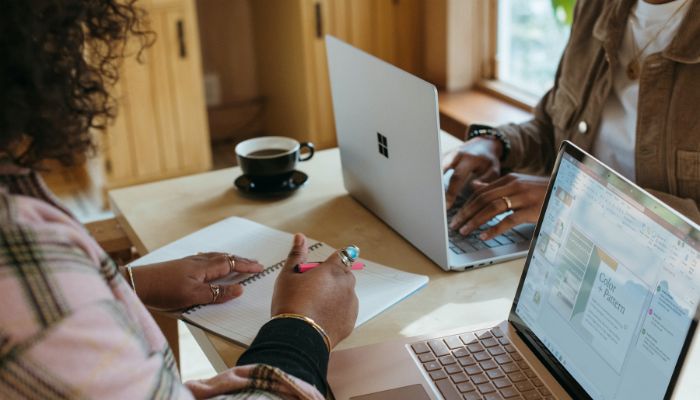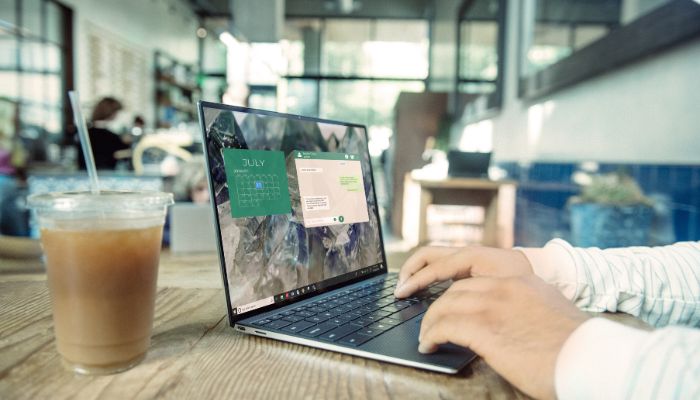
Ever wondered what’s behind a ‘Level 2 Background Check’? You’re not alone. It’s like a detective peering into someone’s past, checking their criminal records, employment history, and more.
A Level 2 Background Check is a thorough check of a person’s history, including their past jobs, any crimes they might have committed, and their qualifications. It helps organizations make sure they are hiring someone safe and reliable. Especially for jobs where trust and safety are very important.
You’ll see its importance in fields like healthcare, education, and law enforcement. As we delve into this topic, you’ll understand the process, legal implications and real-life impacts. So, let’s turn the key and unlock the mysteries of Level 2 Background Checks together.
Table of contents
- Understanding the Basics of a Level 2 Background Check
- The Importance of a Level 2 Background Check in Different Fields
- The Process of Level 2 Background Check
- Components of Level 2 Background Check
- Legal Implications and Privacy Concerns of a Level 2 Background Check
- Industries Requiring Level 2 Background Checks
- Differences Between Level 1 and Level 2 or Level 3 Background Checks
- Case Studies: The Impact of Level 2 Background Checks on Hiring Decisions
- Conclusion
- FAQs (People Also Ask Section)
Understanding the Basics of a Level 2 Background Check
Before you can grasp the intricacies of a Level 2 background check, it’s important to understand the basics. A Level 2 background check is an in-depth, fingerprint-based background check. It’s a more rigorous examination compared to a basic background screening. The Level 2 background check dives deeper into your criminal history record check and employment history check.
If you’re applying for a job or role that requires extensive trust. Especially positions that involve children, elderly, or disabled individuals, you’ll likely undergo a Level 2 background check. It’s not just a quick peek into your past. This check examines local, state, and national databases to uncover any potentially concerning information.
The fingerprint-based background check ensures that even sealed or expunged records are revealed. It’s thorough and designed to ensure employers are making informed decisions about who they hire. The employment history check verifies your work history, adding another layer of credibility to your profile.
In essence, a Level 2 background check is a comprehensive screening tool designed to protect vulnerable populations and uphold industry standards. So, when you’re asked for a Level 2 background check, remember it’s not just about finding potential issues, but also about verifying your credibility.
The Importance of a Level 2 Background Check in Different Fields
You’re probably wondering why a Level 2 background check is so crucial in different fields, and it’s because it provides an extra layer of safety and assurance. During the hiring process, this extensive pre-employment background check helps to scrutinize a candidate’s criminal history record, thus eliminating potential risks associated with hiring someone with a questionable past.
The Level 2 background check is particularly important in:
- Fields where safety is paramount: It serves as a fingerprint background check, ensuring that individuals with criminal histories aren’t placed in positions where they could cause harm.
- Sectors with strict regulatory standards: It helps organizations meet stringent background screening requirements, maintaining compliance with legal regulations and protecting their reputation.
By conducting a Level 2 background check, you’re not just ticking a box in the hiring process. You’re making a commitment to safety, transparency, and adherence to regulations. It’s a crucial step in building a trustworthy, dependable team, free from the potential liabilities that a less thorough check might miss.
The Process of Level 2 Background Check

Initiating the Check: Authorization and Application
When an employer or organization decides to conduct a Level 2 Background Check, the initial step involves obtaining authorization from the individual being checked. This is crucial to comply with background check laws and to ensure transparency and legality in the hiring process.
The individual must fill a background check application and provide consent, usually through a written form, which should detail the type of background check being conducted.
It’s imperative to note that background checks for employment purposes must adhere to the Fair Hiring Laws and provisions set by the Florida Statutes when applicable.
Fingerprinting Process
Fingerprinting is a pivotal component in a Level 2 Background Check. The individual is required to undergo electronic fingerprinting or submit fingerprint cards, such as the FD-258 Fingerprint Card, to facilitate a fingerprint-based background check.
This fingerprinting process is vital as it aids in conducting a thorough criminal history record check. In some instances, especially in Florida State, fingerprinting can be done at specified background check locations, and the fingerprint-based information is utilized to perform a national fingerprint-based check to ensure a comprehensive criminal history analysis.
Submission to Regulatory Agencies
Once the fingerprinting is completed, the data is submitted to various regulatory agencies for further examination. These agencies might include law enforcement agencies, government agencies, and potentially federal law enforcement agencies to ensure a thorough background screening.
Electronic submissions are often utilized to expedite the process and reduce average processing times. The agencies will conduct criminal record searches, criminal records checks, and explore public records to compile a detailed criminal history report.
Special attention is given to criminal records, arrest records, and any record of felony or criminal conviction to safeguard against potential risks. Especially when the position involves working with vulnerable populations.
Analysis and Report Generation
The analysis phase involves a meticulous examination of all gathered data, including criminal records, credit history, and any civil lawsuits or civil judgments against the individual.
The background check report generated will detail the criminal history, any felony convictions, and potentially highlight any discrepancies in the employment history check or educational background verifications. Employment verifications may involve contacting previous employers and verifying the information provided in the job application.
In certain sectors, like health care providers or school districts. Additional background screening requirements may be imposed to ensure the safety of vulnerable populations like children or the elderly.
For instance, school staff and athletic volunteer coaches might undergo additional background screenings relevant to their direct interaction and direct contact with students.
The final background report is then sent to the requesting entity, ensuring it adheres to the background screening criteria and laws applicable, such as ensuring candidate rights and adhering to fair hiring laws. The entity may then utilize this report to make informed decisions in their hiring process or in determining the eligibility of the applicant from volunteering in specific capacities.
Components of Level 2 Background Check

Criminal History: Local, State, and Federal
A Level 2 Background Check meticulously scrutinizes an individual’s criminal history across various jurisdictions. This involves criminal record screenings at local, state, and federal levels to unearth any criminal records, arrest records, or criminal convictions that the individual might have.
The criminal history record check is exhaustive and might involve criminal record searches through various county criminal databases, including those of Broward County, Brevard County, and Palm Beach County, among others, to ensure a thorough examination of the individual’s criminal history.
Employment Verification
Employment verification is a crucial component, ensuring that the information provided by the individual regarding their work history is accurate and truthful.
This involves contacting previous employers and possibly reviewing public records or private records to validate the claims made by the individual during the employment process. Employment history check ensures that the candidate has the experience and integrity necessary for the position.
Education Verification
Verifying the educational qualifications of an individual is paramount to ensure they possess the necessary knowledge and credentials for a position.
Education verification involves checking with educational institutions to confirm the individual’s academic achievements and any additional background in specialized training or certifications.
Professional License and Certification Checks
Especially pertinent in certain industries like healthcare or finance, checking professional licenses and certifications ensures the individual is legally and adequately qualified to perform their role.
This might involve verifying through external sources or regulatory bodies that oversee the issuance and validation of professional licenses.
Sex Offender Registry Check
A sex offender registry check is imperative, particularly for positions that involve interaction with vulnerable populations. This check ensures that the individual has no history of sexual misconduct or offenses that might pose a risk in certain employment scenarios. Adhering to the background screening qualifications and safeguarding the welfare of sensitive demographics.
Additional Components (if any)
Additional components might include credit checks to assess an individual’s financial responsibility. Especially relevant for positions involving financial transactions or management.
A credit report from credit bureaus might be analyzed to ascertain the individual’s financial stability and integrity. Moreover, checks might extend to social media posts to gauge an individual’s online behavior and personal life, ensuring it aligns with the company’s values and standards.
Civil lawsuits, motor vehicle records, and even social security number verification might also be components, depending on the role and industry.
Legal Implications and Privacy Concerns of a Level 2 Background Check

Understanding the legal implications of a Level 2 background check and respecting an individual’s privacy rights is crucial for conducting responsible and law-abiding screenings. This check involves a deep dive into an individual’s past, including criminal records and arrest records, raising some privacy concerns.
It’s essential to familiarize yourself with the legal implications of conducting such checks. Here’s a breakdown:
Legal Implications:
- You must follow the Fair Credit Reporting Act (FCRA) guidelines, which protect individuals from unfair background checks.
- You can’t use arrest records older than seven years in most cases.
Privacy Concerns:
- You must obtain an individual’s written consent before conducting a background check.
- You must inform the individual if information found in the check could influence your decision.
Ignoring these legal implications and privacy concerns can lead to lawsuits and damaged reputations. Therefore, it’s essential to conduct background checks responsibly, ensuring you’re not infringing on anyone’s rights. By doing so, you’ll maintain both your legal standing and the trust of those you’re screening.
Industries Requiring Level 2 Background Checks
- Healthcare: People in healthcare, like doctors and nurses, need a Level 2 Background Check. They work with sick people and old people, so we need to know they are safe and good.
- Education: Teachers and school workers also need this check. They work with kids a lot. We check to make sure they have no bad criminal history or sexual misconduct.
- Financial Services: People who work with our money, like in banks, get checked too. This is to make sure they are honest and won’t steal money. We look at their credit history and past jobs.
- Government and Public Sector: People who work for the government, like in offices or law enforcement agencies, need checks. We need to know they are trustworthy because they work with important things like laws and safety.
- Other Relevant Industries: Some other jobs, like security guards or those who work with vulnerable populations, need checks too. We want to make sure everyone is safe when they work with other people.
In all these jobs, we check to make sure people are good and can be trusted. This helps keep everyone safe and happy in their work and life.
Differences Between Level 1 and Level 2 or Level 3 Background Checks

Level 1 Background Checks are quite basic. They usually involve a name-based search, checking against criminal history databases and public records. This might include looking at criminal records and employment history. It’s a general check to see if there are any big red flags or issues.
On the other hand, Level 2 Background Checks go deeper. They use fingerprints for the search of fingerprint databases, making the results more accurate.
This check looks at criminal history, arrest records, and even credit history in more detail. It’s used for jobs where you might work with vulnerable people like kids or the elderly, so it checks sexual misconduct records too. It’s thorough to ensure safety and compliance, especially in sensitive roles.
Level 3 Background Checks are even more detailed. They might involve checking all the things from Level 1 and 2 but in more depth. This can mean looking at civil lawsuits, financial records, and even social media posts.
It might involve talking to previous employers and checking educational background very closely. It’s used for high-security jobs, like in government agencies or financial services, where trust and security are super important.
In short, Level 1 is basic, Level 2 is more detailed and uses fingerprints, and Level 3 goes very deep, checking many aspects of a person’s past and present.
Case Studies: The Impact of Level 2 Background Checks on Hiring Decisions
How significantly do Level 2 background checks impact your hiring decisions?
Understanding the various levels of background checks is crucial to making informed decisions. A Level 2 check is among the most detailed types of background checks, providing in-depth information to help you evaluate a candidate.
Level 2 checks delve into criminal history, including nationwide records, sex offender databases, and sometimes even international criminal records. This extensive background screening report can heavily influence your hiring decisions, particularly for positions of trust or those involving vulnerable populations.
For instance, in a case study involving a healthcare company, a Level 2 check revealed a potential hire had a history of elder abuse. This information significantly impacted the hiring decision, preventing a potentially harmful situation.
However, it’s essential to remember candidate rights. While these checks provide valuable information, you must ensure you’re using the data responsibly and legally. It’s crucial not to discriminate based on information found unless it directly affects the candidate’s ability to perform the job.
Conclusion
A Level 2 background check is like a magnifying glass, highlighting past actions that may impact one’s suitability for certain roles. It’s a vital tool, yet one that must be wielded with care, respecting privacy laws and individual rights.
Remember, it’s not a crystal ball predicting future behavior, but a tool providing clarity on past actions. It’s a piece in the complex puzzle of hiring, helping create safer workplaces for us all.
FAQs (People Also Ask Section)
What is the difference between Level 1 and Level 2 background checks?
Level 1 checks are basic, checking things like criminal records using a name search. Level 2 checks are deeper, using fingerprints and checking more databases, like criminal history, arrest records, and sexual misconduct databases.
How long does a Level 2 background check take?
A Level 2 check can take several business days to a few weeks. It depends on how long it takes to check all the records and get the fingerprints checked. Sometimes, it might take longer if there are issues with the fingerprints or if the person has lived in many places.
What disqualifies you from a Level 2 background check?
Things like a criminal conviction, especially for serious crimes or sexual misconduct, might disqualify you. Also, false information on the application or a bad credit history might be a problem, depending on the job.
Can you pass a Level 2 background check with a felony?
It depends on the job and the felony. Some jobs might be okay with a past issue if it’s not related to the job. But, some jobs, especially with vulnerable populations or in security, might not accept a felony in the criminal history.